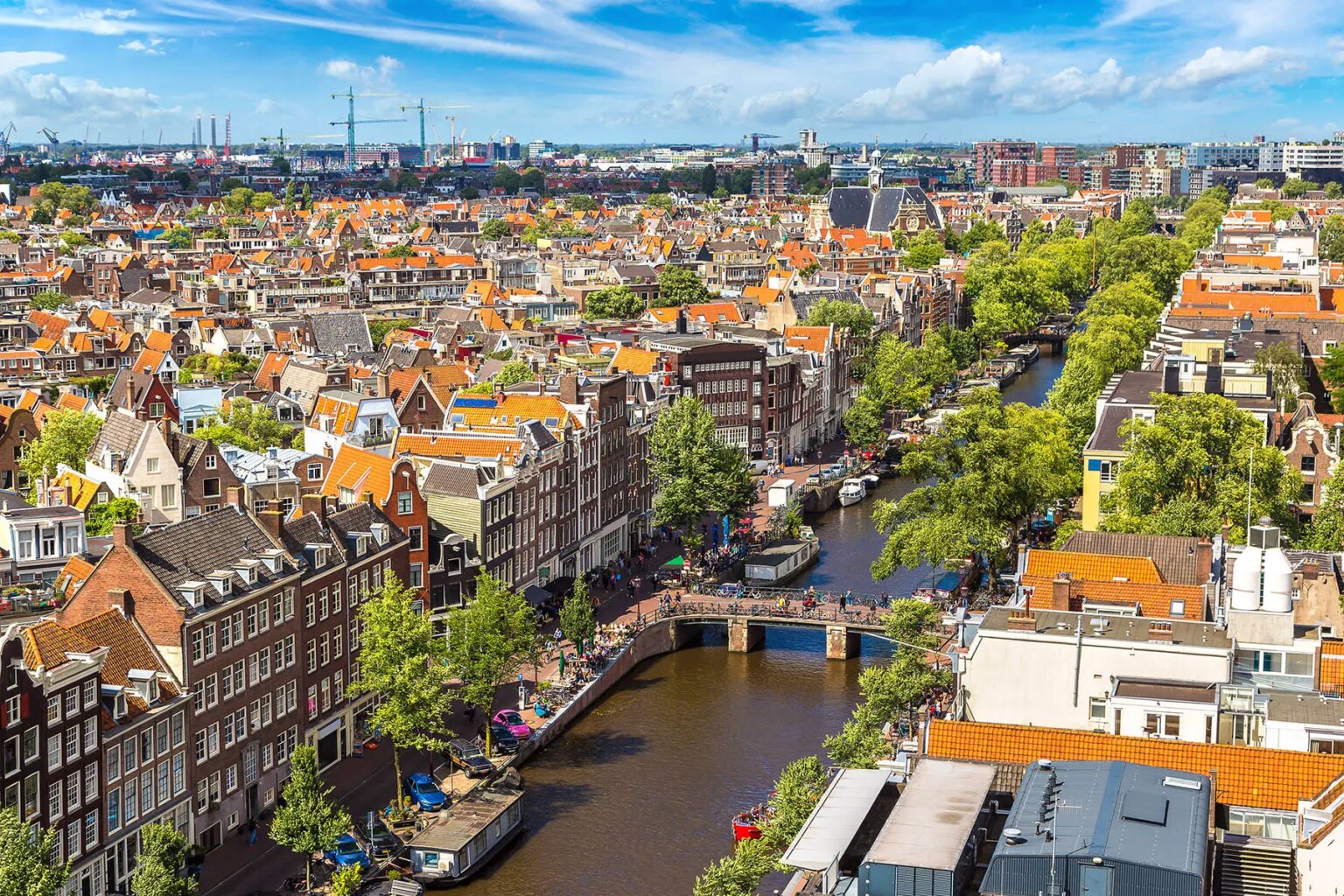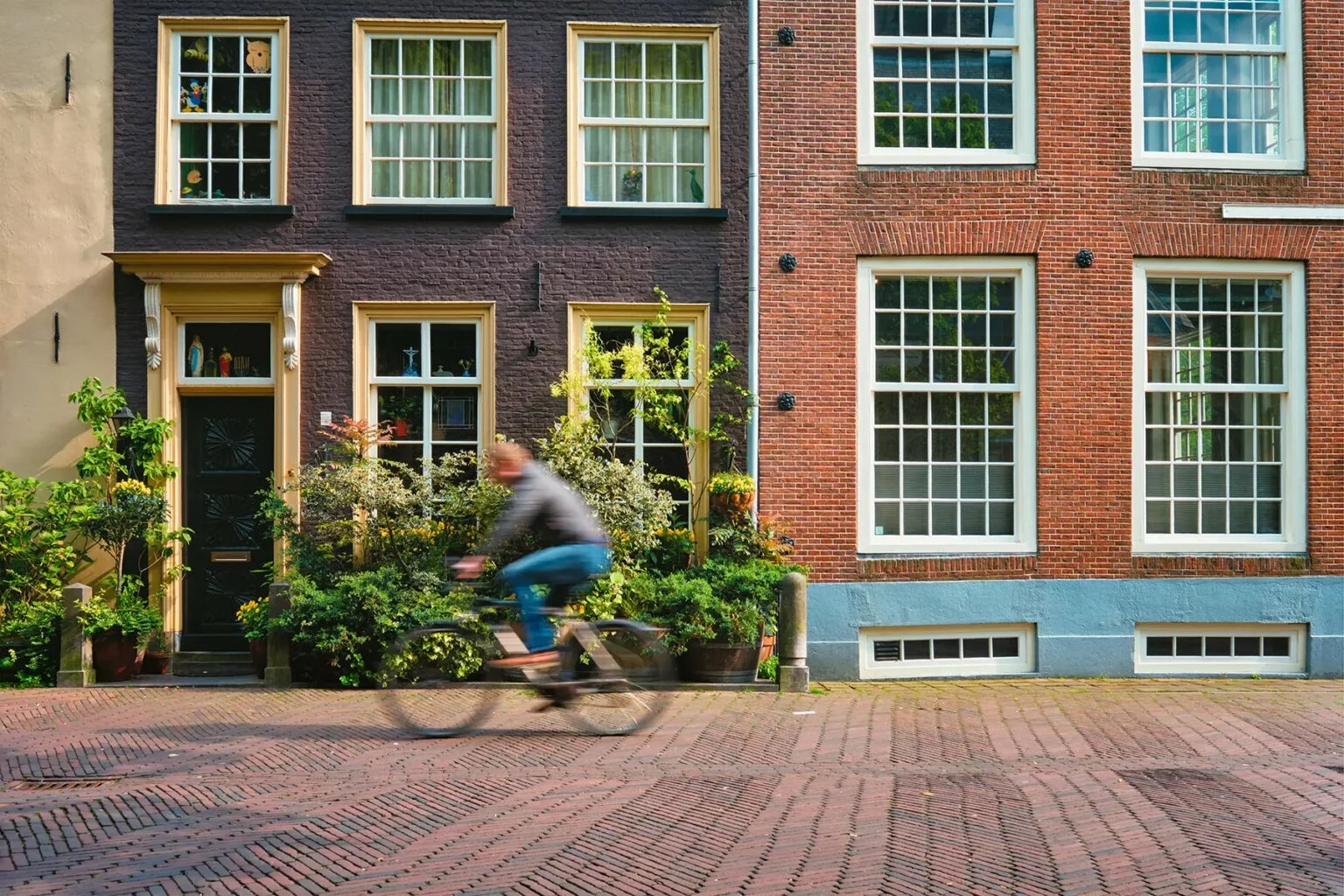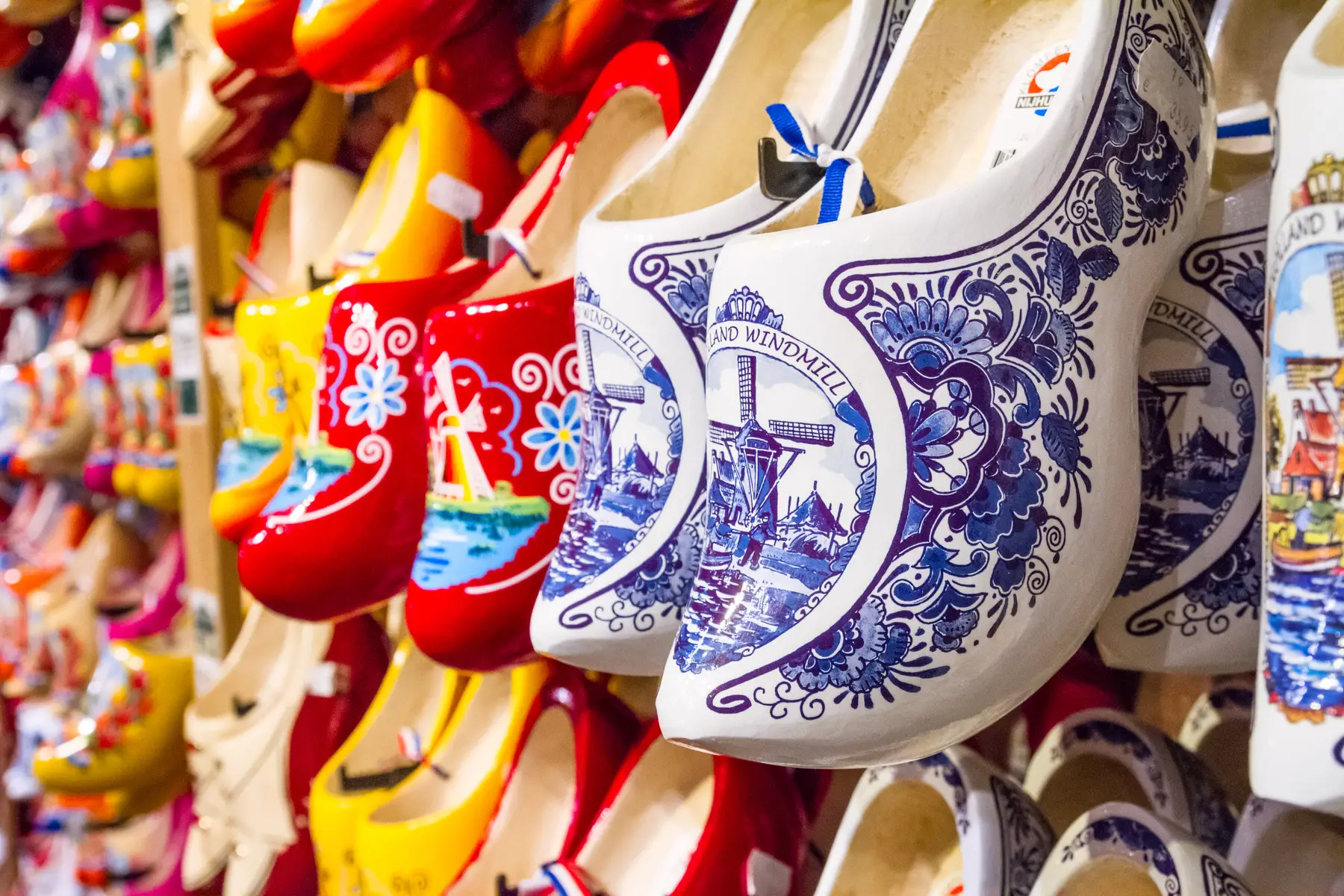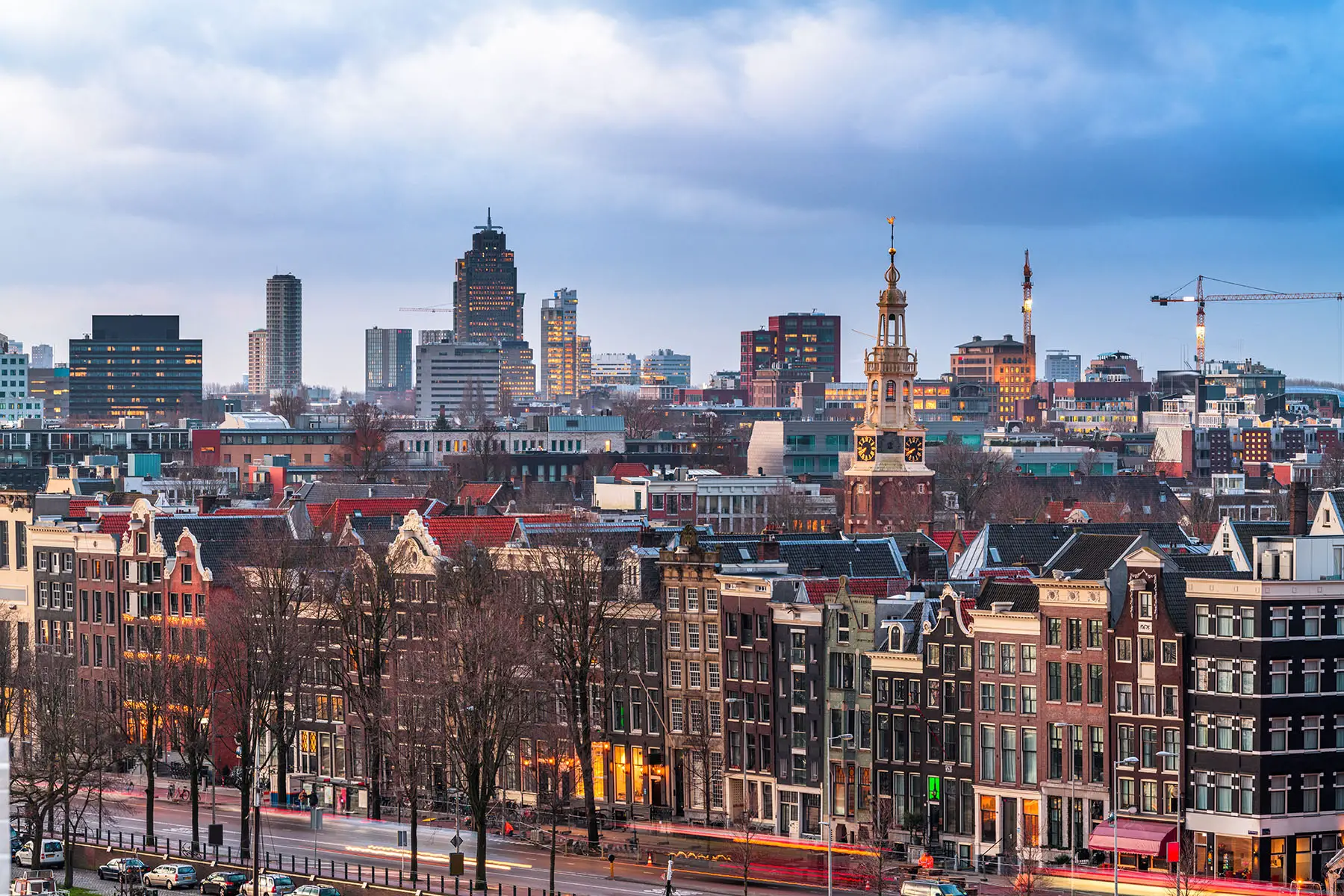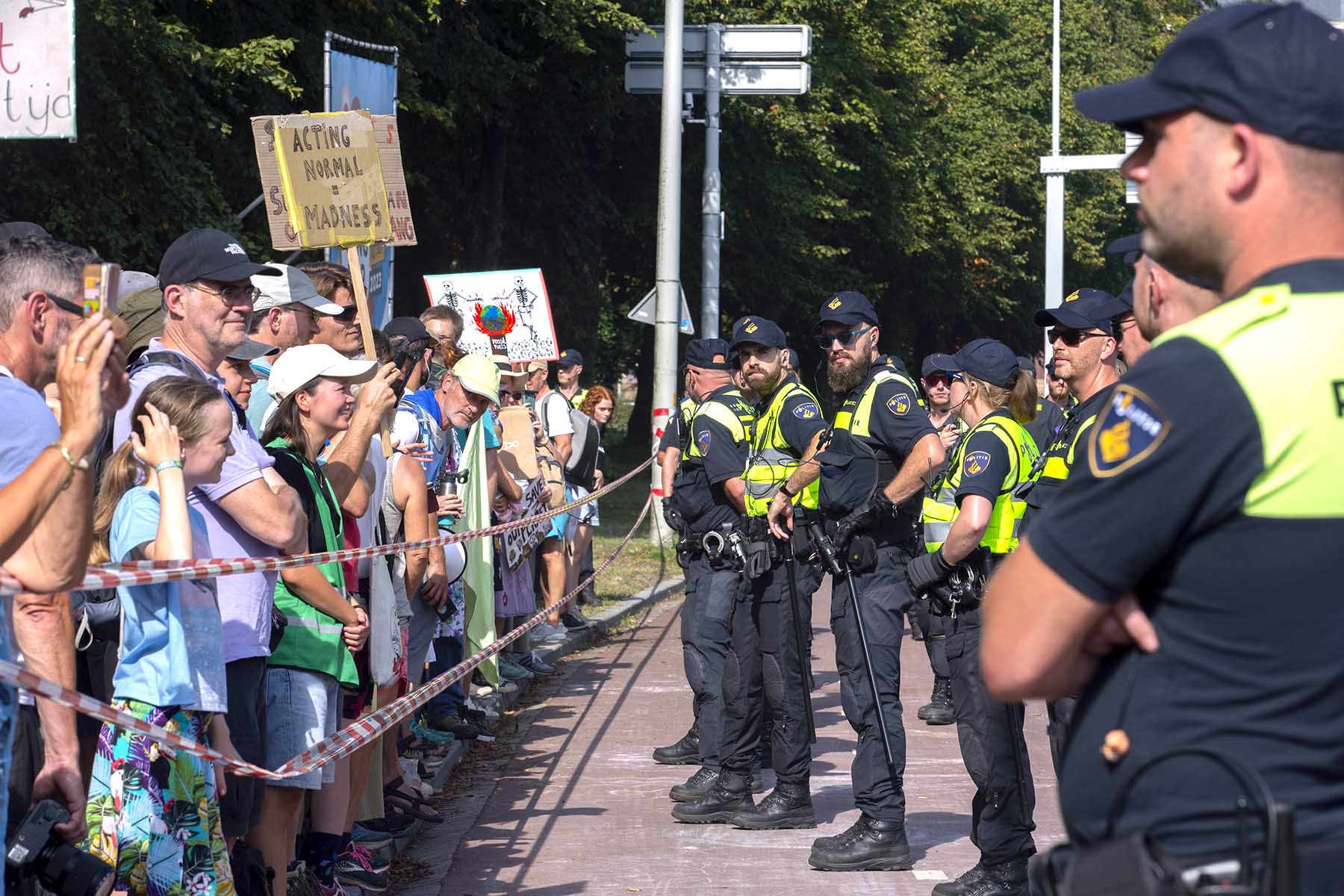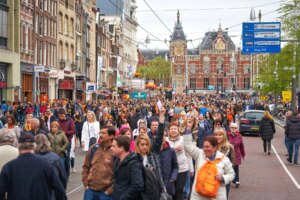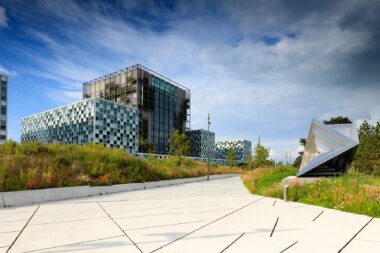The Netherlands is famous for its lenient soft drugs policy, a profusion of red-light districts, excellent beer, and world-class museums. Even more importantly, it’s a liberal democracy that enshrines gay rights and promotes a healthy work-life balance… surely that’s enough reason to move there?
But what’s the reality of life in this country? Let’s move along on our quest to find out what expat life in the Netherlands really entails. This article covers the following:
- What’s it really like to live in the Netherlands?
- Can I afford expat life in the Netherlands?
- Is it easy to find love in the Netherlands?
- What is it like to work in the Netherlands?
- Can I afford to buy a home in the Netherlands?
- Living in the Netherlands as a woman
- What’s it like raising kids in the Netherlands?
- What’s the healthcare situation in the Netherlands?
- What is the worst thing about living in the Netherlands?
- What is the best thing about living in the Netherlands?
Sirelo
It’s no secret that moving abroad can be stressful. Sirelo’s team of removal advisers is here to help. They provide five free quotes from international shipping companies so you can find the best options at the best prices. Take the stress out of your relocation to The Netherlands with Sirelo.
What’s it really like to live in the Netherlands?
As someone new to Dutch society, you’ll often come up against the quirks of life in the Netherlands. People often plan outings weeks in advance, they start on time, and everyone pays their own way. Life here is structured down to the minutest detail, partly because the tiny country has a high population density. It ranks just above 22nd in the world with 518 inhabitants per square meter, just above Burundi and below South Korea. The nation’s Calvinist roots also emphasize respect, integrity, acceptance, perseverance, efficiency, reliability, and self-discipline. Solutions must work for everybody.
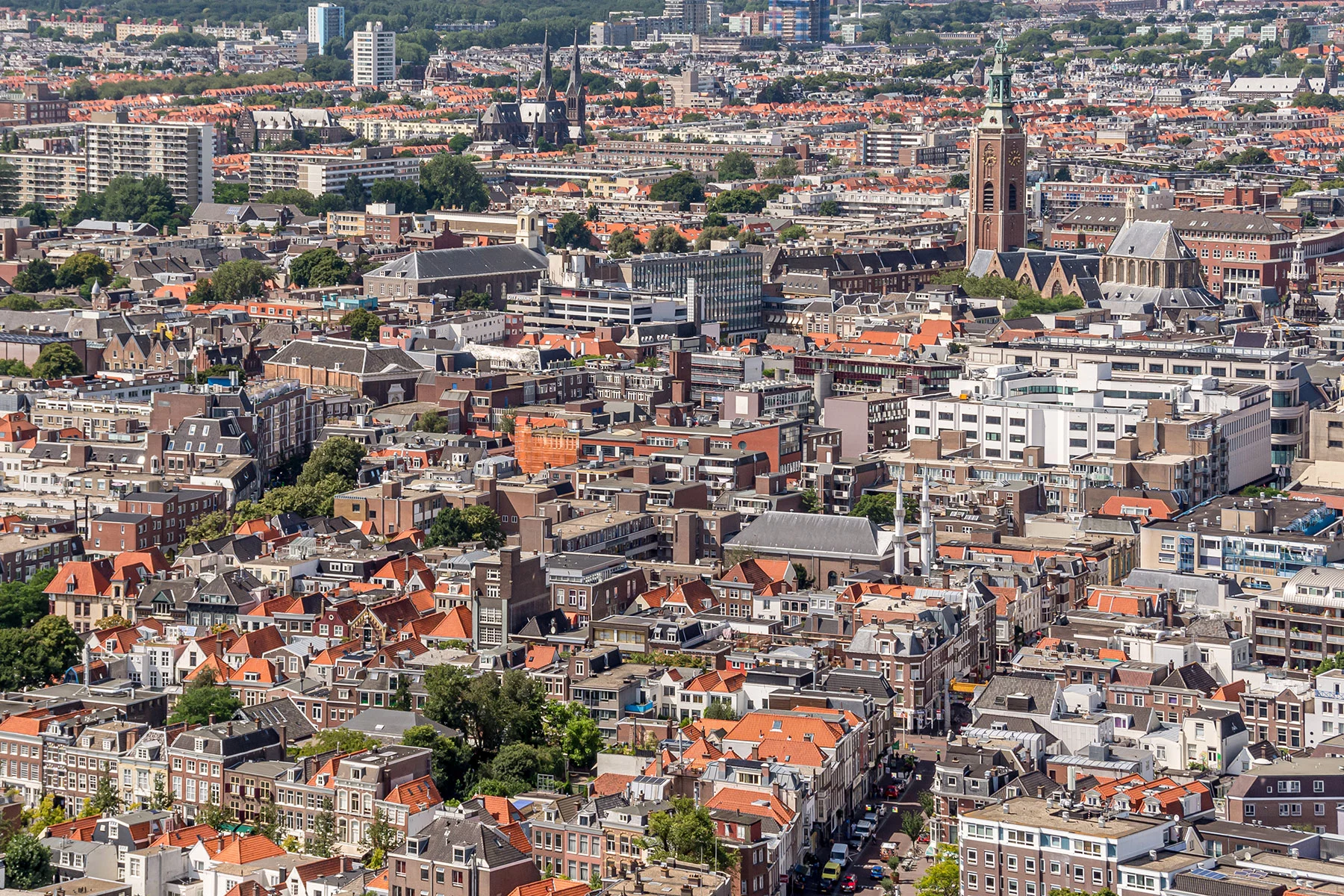
Along with the nation’s size, that explains why the Netherlands is so open and tolerant towards drugs and sexuality, yet oddly normative. For example, soft drugs in the Netherlands, for example, are freely available – but only legal in designated coffeeshops when you present your ID. Again, you can smoke a joint in a coffeeshop but may incur a fine for lighting up a cigarette or a spliff. All very normal to the Dutch, but mind-numbingly confusing for foreigners.
By and large, the Dutch are friendly and always up for a chat – even with the cleaner. But they take their time to welcome you into their lives. Once they do, however, they’ll treat you like a member of the family. Thrift and normalcy are more important than extravagant lifestyles; the Prime Minister cycles to work and mops up his own spilled coffee. The Netherlands is also one of the safest countries in Europe. However, individualism is still endemic.
The Dutch are also a nation of consensus builders. Meetings, for example, can last for hours because everybody gets a chance to speak. They’re famously opinionated and their directness is legendary, but their often blunt comments are usually just a form of constructive criticism. This means you can say what you think, but a value judgment could well be a step too far.
Dutch openness to foreigners
The Dutch are surprisingly accepting of foreigners, especially in the big cities. Those living in the countryside may often come up against the small-mindedness that shaped the rise of anti-immigrant thinking in recent years, in line with similar attitudes elsewhere. Nevertheless, about 13% of the Dutch population is first-generation immigrants.
When it comes to language, some expats get by without speaking Dutch. The Netherlands apparently has the highest standard of English as a second language. However, as with any culture, you’ll get a lot further with making friends if you do learn the Dutch language. However, you must demonstrate your basic Dutch skills if you hope to settle permanently in the Netherlands and want a Dutch passport. You’ll need to have worked in the Netherlands for a minimum of five years and taken the inburgering (or integration) exam before you can apply.
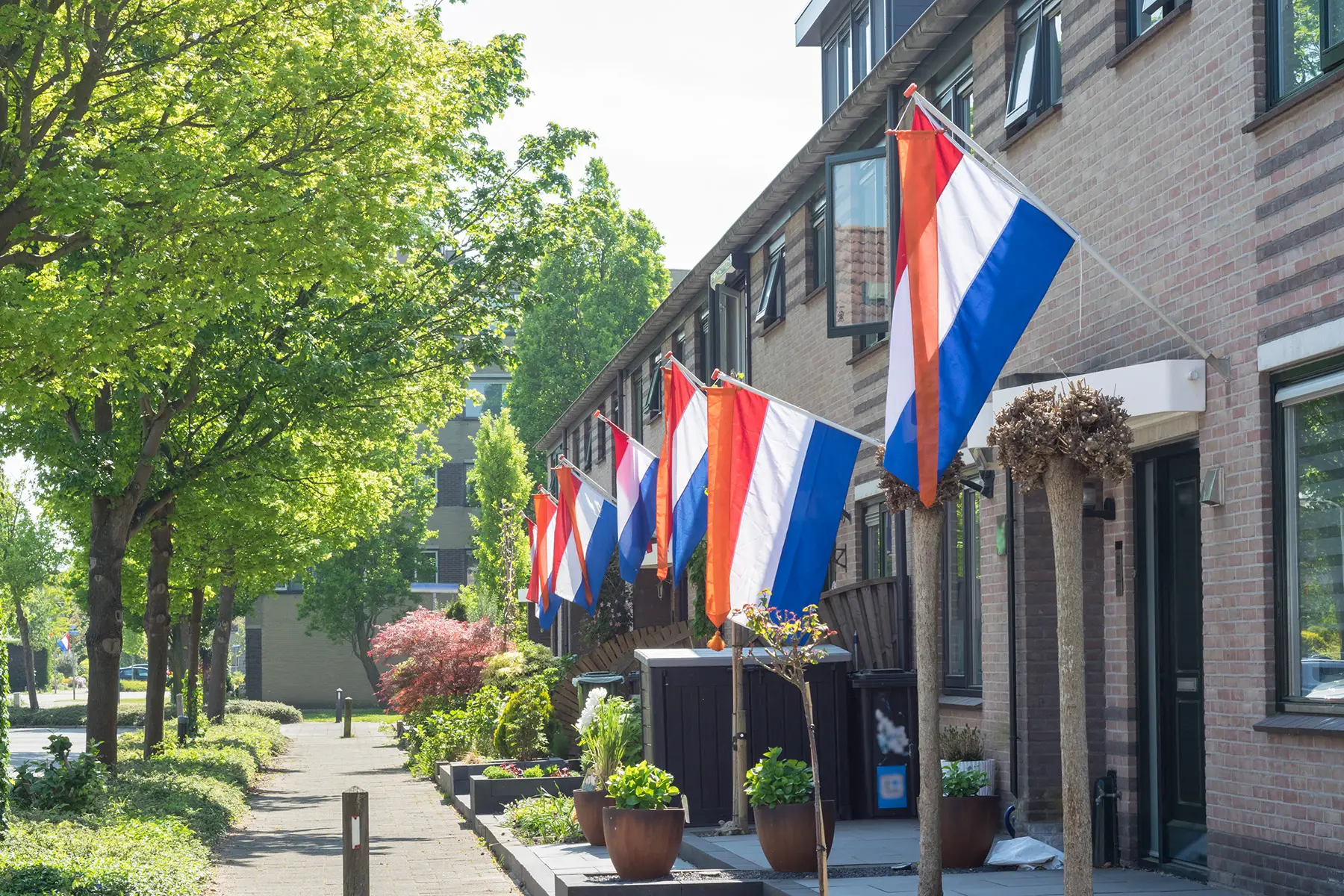
If there’s one other concept you need to understand, it’s gezelligheid, one of those untranslatable words. It variously translates to fun, conviviality, coziness, gregariousness, and a warm feeling that engenders human connections. Everything from an evening out to a supermarket is rated on how gezellig it is; you’ll hear the word a lot. The abstract notion underpins modern-day Dutch society and may be its greatest goal.
Can I afford expat life in the Netherlands?
Life in the Netherlands isn’t exactly cheap, but it’s possible to live here without breaking the bank. While the cost of living is about 6% higher than in the US, rents are 15% lower. The average net-adjusted disposable income per capital lies at €25,956, lower than the OECD average of €29,735. Despite the country’s egalitarian society, there is a considerable gap between the richest and the poorest. The top 20% of the population earns four times as much as the bottom 20%.
While monthly rents in Amsterdam can easily range between €1,000–4,000, depending on how close to the center you live, other towns and cities outside the capital offer larger accommodation at a lower price, often with more access to green spaces.
Mercer’s 2021 Cost of Living Ranking ranks Amsterdam as the 44th most expensive city, 20 places higher than in 2020. For a comparison, Zurich ranks fifth, London 18th, Frankfurt and Berlin place 54th and 60th respectively.
However, the Netherlands is generally cheaper than its western European counterparts in living expenses, particularly in terms of food, utilities, and public transport. However, jobs are slightly less well paid. A pint of beer in the touristy areas of Amsterdam is about $4.60, in comparison to $5.97 in London and $11.26 in Doha.

As a welfare state, Dutch taxes are high – up to 52%. Several tax credits and allowances are available, including for single parents and low-income earners. Even expats are eligible for several social security allowances, from Dutch child benefits to unemployment in the Netherlands. Expats in the Netherlands hired from abroad may be eligible for a tax rebate known as the 30% ruling.
Is it easy to find love in the Netherlands?
The Dutch run their love lives like they do everything else – directly and by stating what they want. Women are just as likely to approach someone they find interesting, whether on a Dutch dating site or in a bar. Neither sex is big on flirting or huge romantic gestures. They prefer paring things back to a focus on the emotional aspect of the relationship. Like in all else, assertiveness scores.
That the Dutch are open to dating foreigners is evident: Queen Máxima is Argentinian, every previous consort has been German. Many millennials and younger Dutch people now prefer to live together or register their partnership rather than marrying at all.
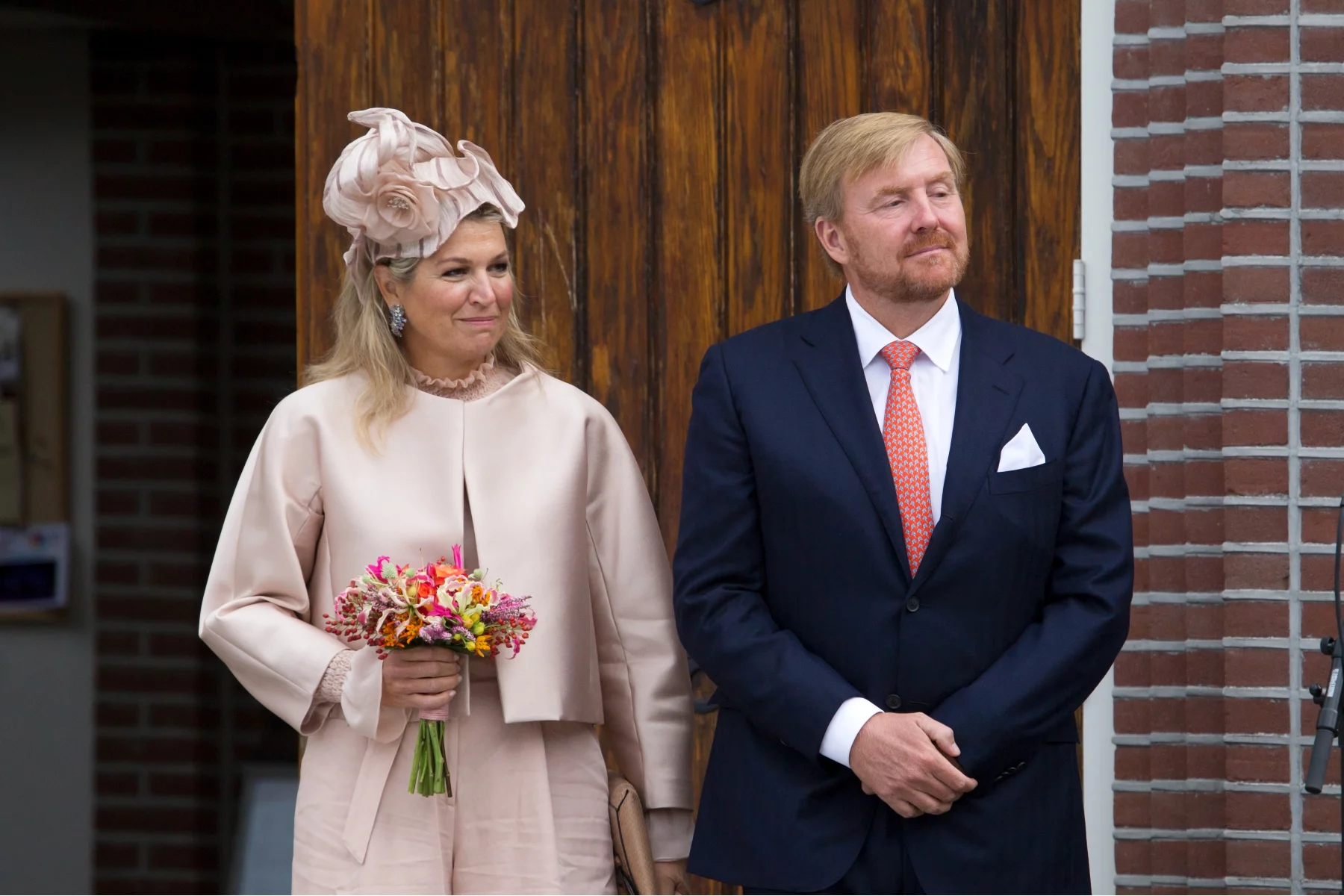
Thanks to its status as the first country in the world to legalize same-sex marriage (2001) and one of the earliest to legalize homosexuality (1811), the Netherlands has long been a draw for those in search of alternatives to the heterosexual lifestyle and an active gay scene.
What is it like to work in the Netherlands?
The Netherlands has the third-best work-life balance of 38 countries tracked by the OECD Better Life Index. Only about 0.4% of Dutch employees regularly work very long hours in comparison to the OECD average of 11%.
That said, as the fifth-largest economy in the European Union and the 18th in the world but only 17 million people, the Netherlands also faces a severe shortage of labor. There are currently 126 job vacancies per 100 unemployed people. Some of the most commonly advertised jobs include:
- Cleaners
- Truck drivers
- Warehouse workers
- Mechanics
- Telesellers
- Electricians
- Software developers
- Advertising and marketing specialists
- ICT workers
With the excellent transport system, many Dutch people commute to the major urban areas of Amsterdam, Rotterdam, Utrecht, and The Hague (a conurbation together called the Randstad). More than 60% of employees commute to work, with a half-hour’s ride each way considered normal – sometimes even on the bike.
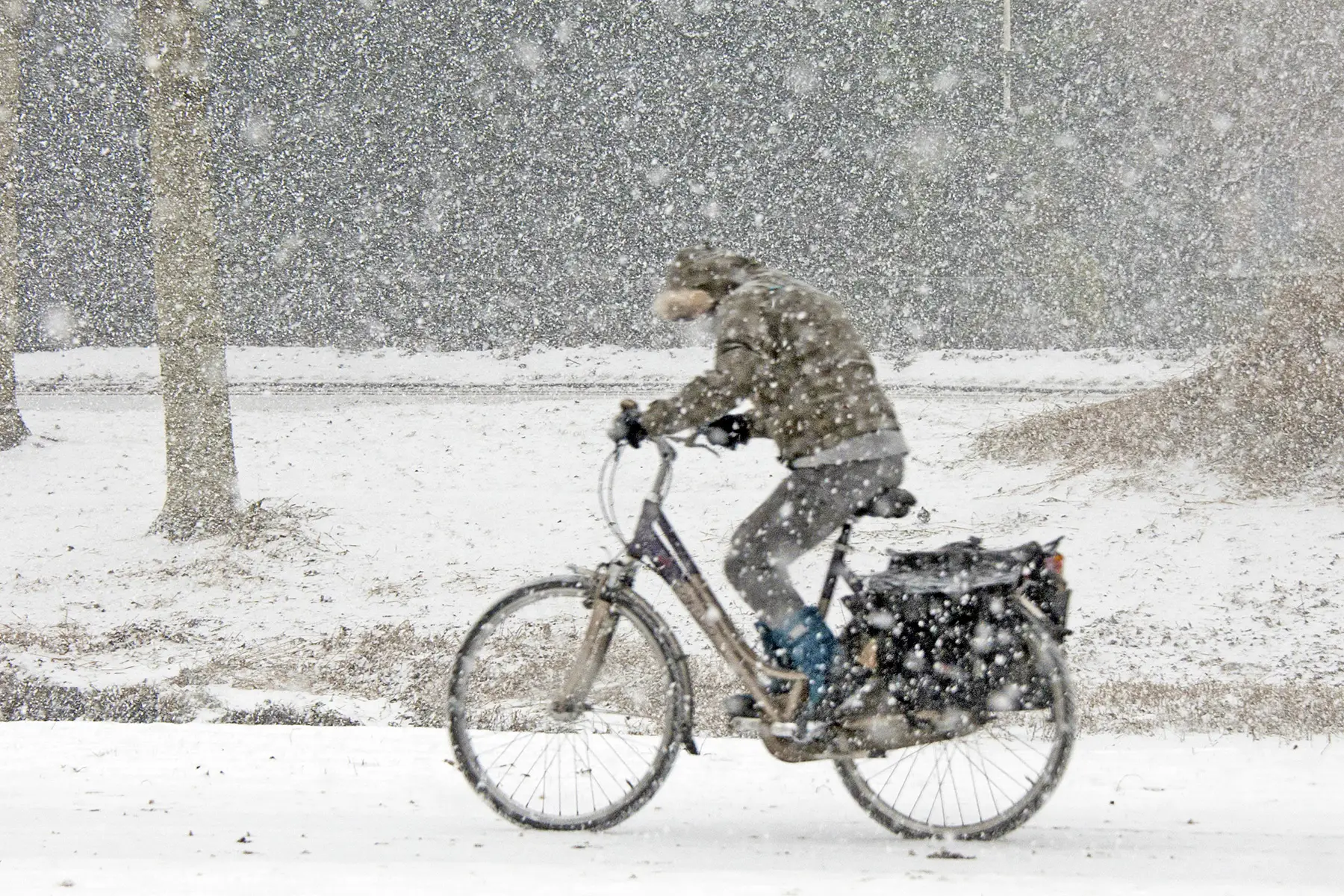
If you find a job at an international company in the Netherlands, the lingua franca will probably be English. Expect watercooler conversations to be in Dutch, though. Companies have a relatively flat hierarchy in line with the country’s social egalitarianism. Managers should be facilitators rather than omniscient authorities. It’s common in Dutch business culture for an intern to speak directly to the CEO.
Salaries and taxes in the Netherlands
Wages tend to the average global industry range, though they skew lower than in the UK or US. The average salary is yearly gross of around €36,500, or €2,816 per month, but this can differ by industry, experience, skills, and qualifications. As of July 2021, the monthly minimum wage in the Netherlands was €1,701 for employees over 21 (€9.82–10.91 per hour depending on your working week). Freelancing is also a common employment option. Around 1.1 million people are self-employed as an independent with no staff (zelfstandige zonder personeel) also commonly referred to as a zzp’er.
The high taxes in the Netherlands mean that Dutch pensioners have it relatively easy. Any individual living or working in the Netherlands is typically insured for the Dutch state pension Algemene Ouderdomswet (AOW). The retirement age is currently set at 66 years and seven months.
Can I afford to buy a home in the Netherlands?
Foreigners can freely buy a house in the Netherlands. The expanding home market has sent capital values soaring in recent years, with incomes lagging behind.
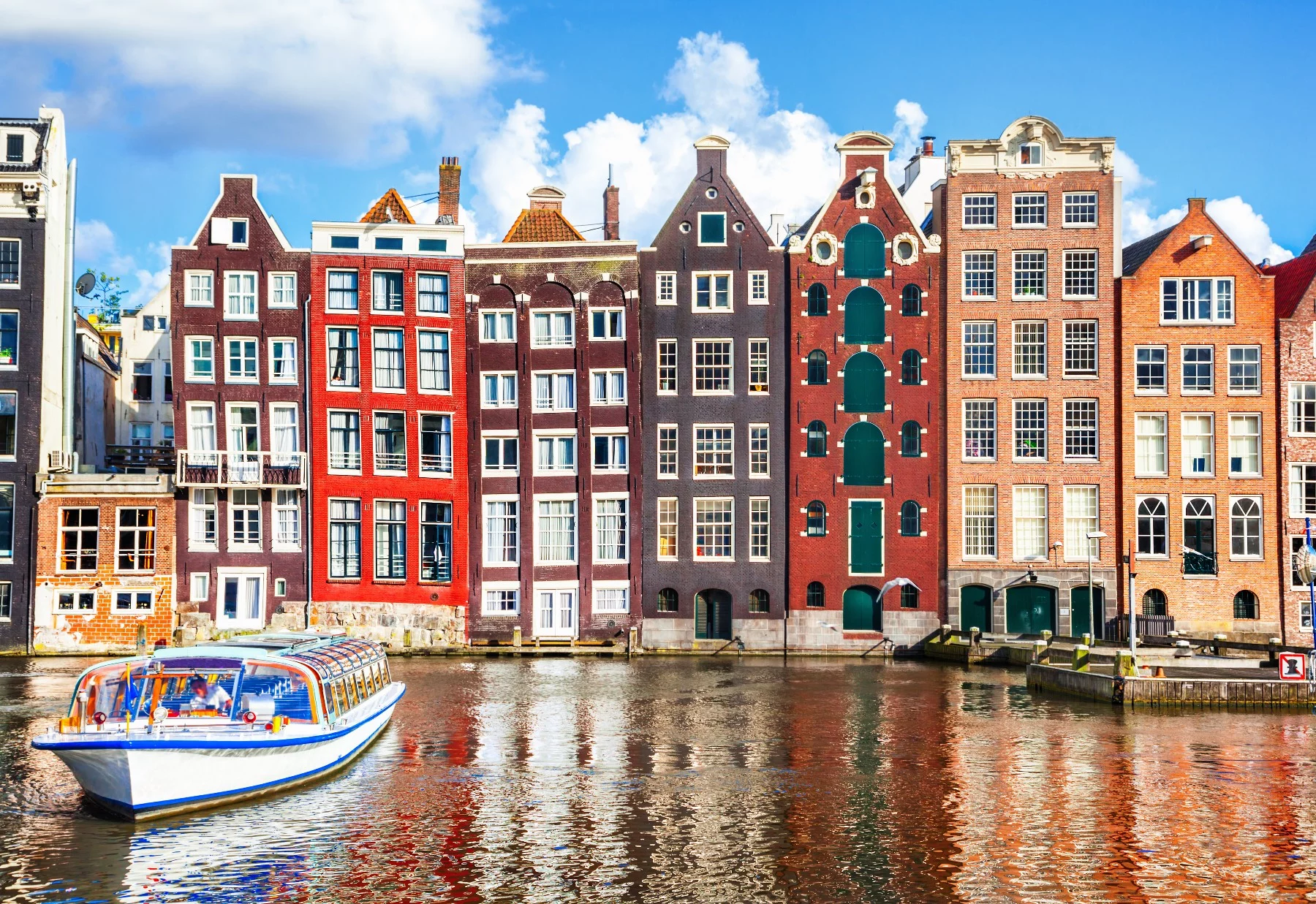
The average house price in the Netherlands is €419,000. A house in Amsterdam is much more expensive.
However, mortgages are easy to obtain, with banks willing to advance 100% of the home’s value. Interest rates top out at 3.4% for a 20-year mortgage. Typically, you’ll need to be in permanent employment and have lived in the Netherlands for at least six months. Homebuyers are eligible for several tax benefits in the Netherlands, including mortgage advice and mediation fees.
Living in the Netherlands as a woman
Although the top job in the Netherlands was held by three women in succession from 1890 to 2013, Dutch society was divided along gender lines until well after the Second World War. Until 1956, there were no married women working in Dutch civil service positions. Women automatically lost their job as soon as they took their vows.
Following a wave of protest against the traditional division of roles in the sixties, the Dutch government took the position that the state must support the free choice of an individual. Men and women were thus free to arrange their lives as they wished. By 1994, gender equality became law and it is now illegal for employers to discriminate by gender, race, or sexual orientation.
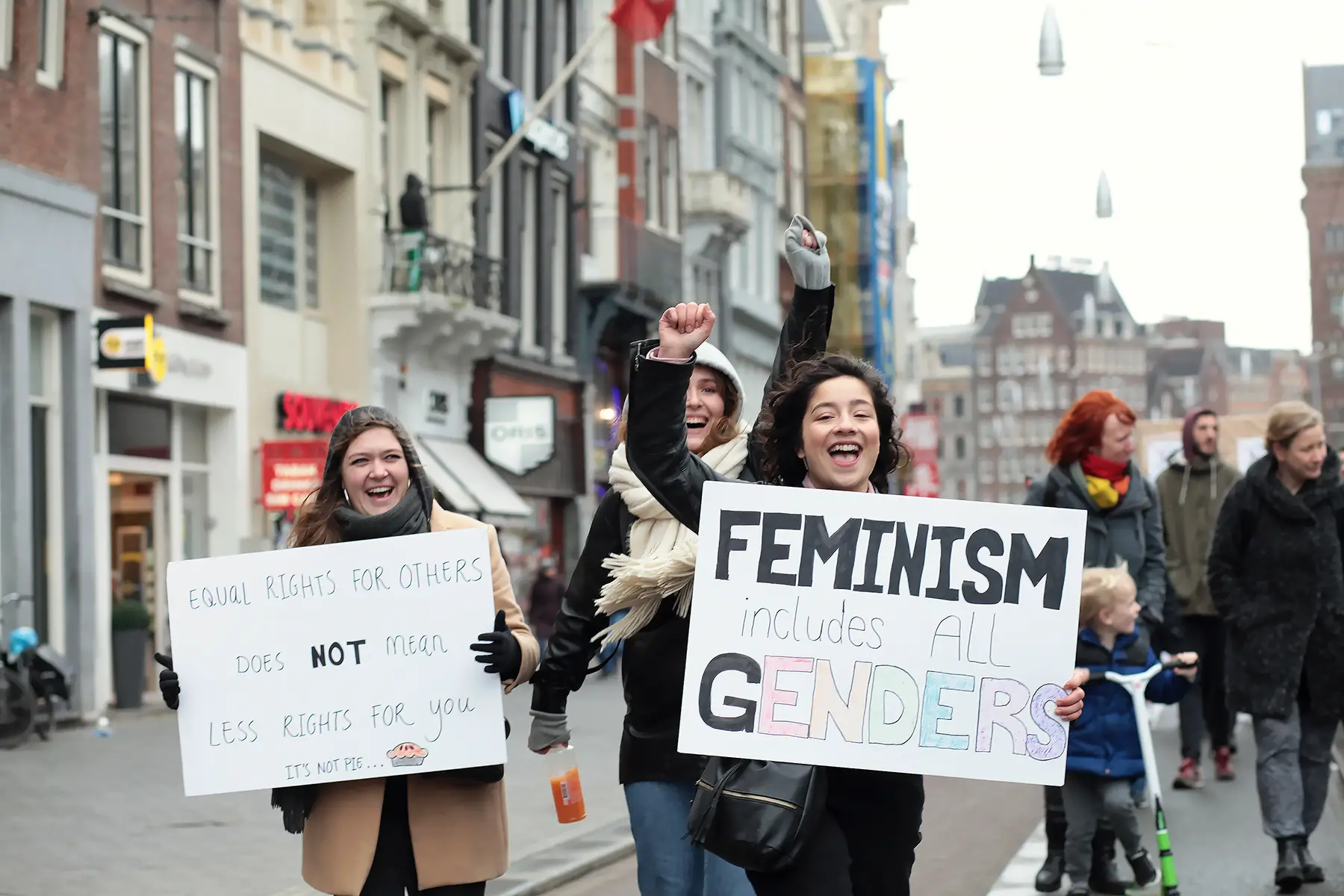
In practice, several differences remain. According to research from Tilburg University, 27% of company directors are female. In addition, only 27% of women work full-time compared to 71% of men. In terms of salaries, there’s still a wage gap; women earn 14% less than men on average. And that inequality extends into the home – women still do nine hours more household jobs than men.
Health and safety in the Netherlands
When it comes to women’s healthcare in the Netherlands, check-ups aren’t routine, in line with the standard approach in the Netherlands. Private health insurance is mandatory for everyone. Anyone who wants to see a specialist – including a gynecologist – must consult their GP first. However, women are invited for pap smears between the ages of 30 and 60. Women aged 50–75 are invited for a mammogram by their GP or a specialist every two years.
The Netherlands has a slightly unusual pre-natal and delivery system in comparison to other European countries. Although prenatal care can seem strangely lacking by some standards, with the Dutch medical establishment viewing childbirth as a natural process rather than a medical one, few new mothers complain about the high level of post-natal care, which can even include personal help at home. Public health insurance in the Netherlands covers most maternity costs as well as abortions.
What’s it like raising kids in the Netherlands?
The importance of home life means that family is a bedrock of Dutch society. Employers don’t usually have a problem with staff taking time off to be with their kids. The government subsidizes childcare in the Netherlands with benefits for those until the age of 18.
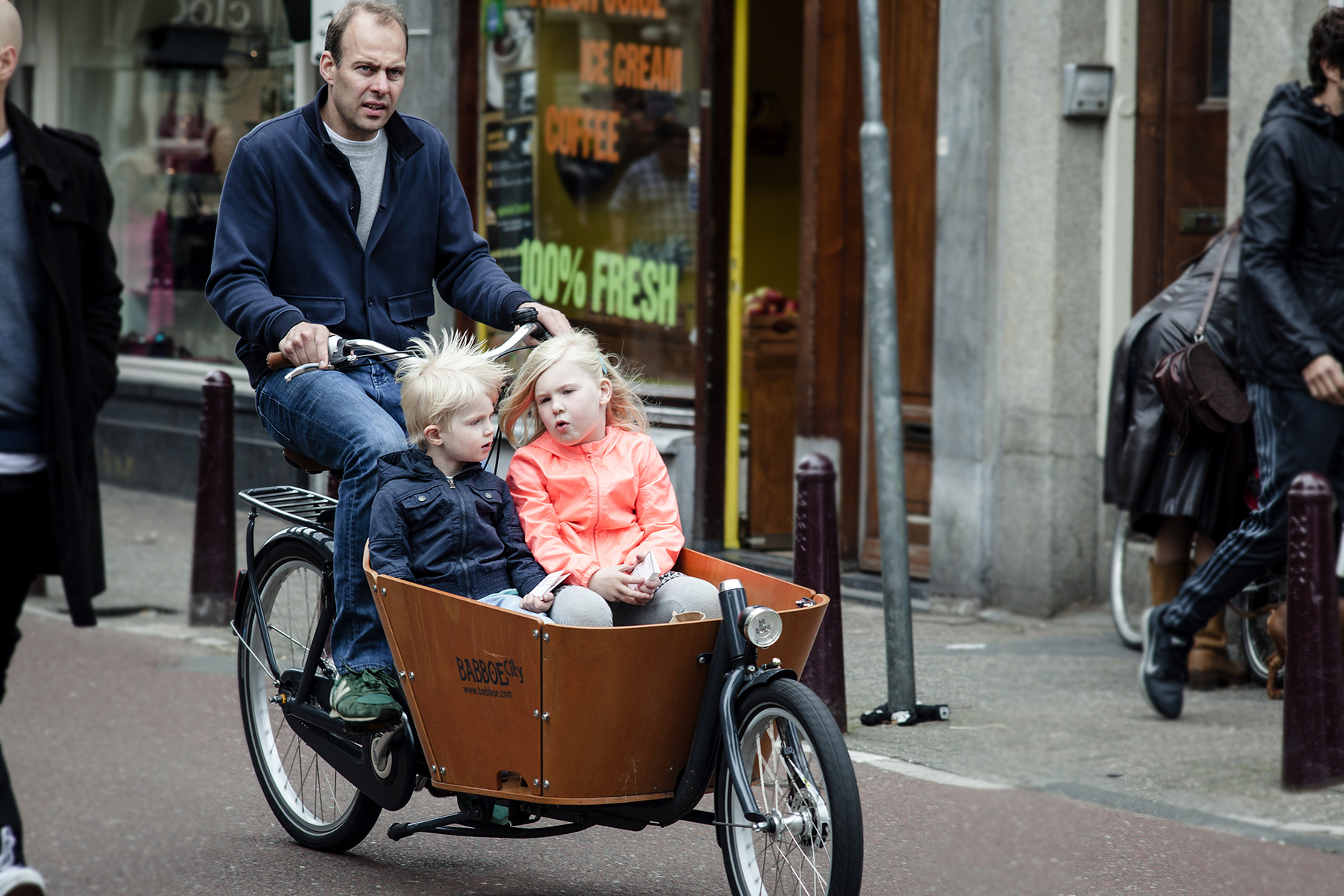
The Dutch raise some of the happiest children in the world, thanks to this supportive environment in the home and at school, and social attitudes that allow children to be children while involving them in the decision-making process. Children won’t usually be constrained by helicopter parents and there is a strong emphasis on outdoor and cultural activities for kids.
Education in the Netherlands
Expats must decide between an international school in the Netherlands or a Dutch school for their kids, who must start school by the age of five by law. In practice, Dutch children go to school from the age of four; formal reading and writing lessons only begin at the age of six. Free primary and secondary education is available to everyone and Dutch schools are well-rated on quality standards.
Parents looking for help with their children may only hire an au pair from an established agency.
Couples who want to adopt children must fulfill a number of conditions, including being at least 18 years older than the child they want to adopt. The Netherlands is at the vanguard of international efforts to ensure that all adoptions are in the child’s interest. Same-sex parents have the same adoption rights as heterosexuals.
What’s the healthcare situation in the Netherlands?
The Dutch healthcare system is widely regarded as one of the best in the world. Of course, that doesn’t stop people complaining about it – Dutch healthcare is generally non-interventionist in nature. Doctors don’t hand out medications lightly – yet the Netherlands spends approximately 10% of its GDP on health.
A Dutch doctor (huisarts) is responsible for gathering all your medical records and they are the gatekeepers to all the other types of medical treatment, so will be your first point of contact when you have a health problem (unless it’s an emergency, of course). They can deal with routine health issues, perform standard gynecological and pediatric examinations, and refer you to other services, including hospitals, specialists, home midwifery, and physiotherapy. Appointments are generally short, averaging 15 minutes or less.
Basic health insurance is mandatory for all residents, with a minimum co-payment (eigen risico) of €385 per year.
Health insurance is mandatory if you’re living in the Netherlands, but Dutch plans are available to residents only. For newcomers, health insurance from these international providers can offer protection against unexpected medical emergencies in your first few months in the Netherlands:
You can use these policies to bridge coverage gaps after your move and during your stay, but if you plan to live in the Netherlands long-term, you may need to subscribe to a health insurance plan with a regulated local provider.
What is the worst thing about living in the Netherlands?
Dutch people quite rightly complain about the weather. Amsterdam receives 1,670 hours of sunshine a year, more than London and Berlin, and about the same as Paris and Prague.
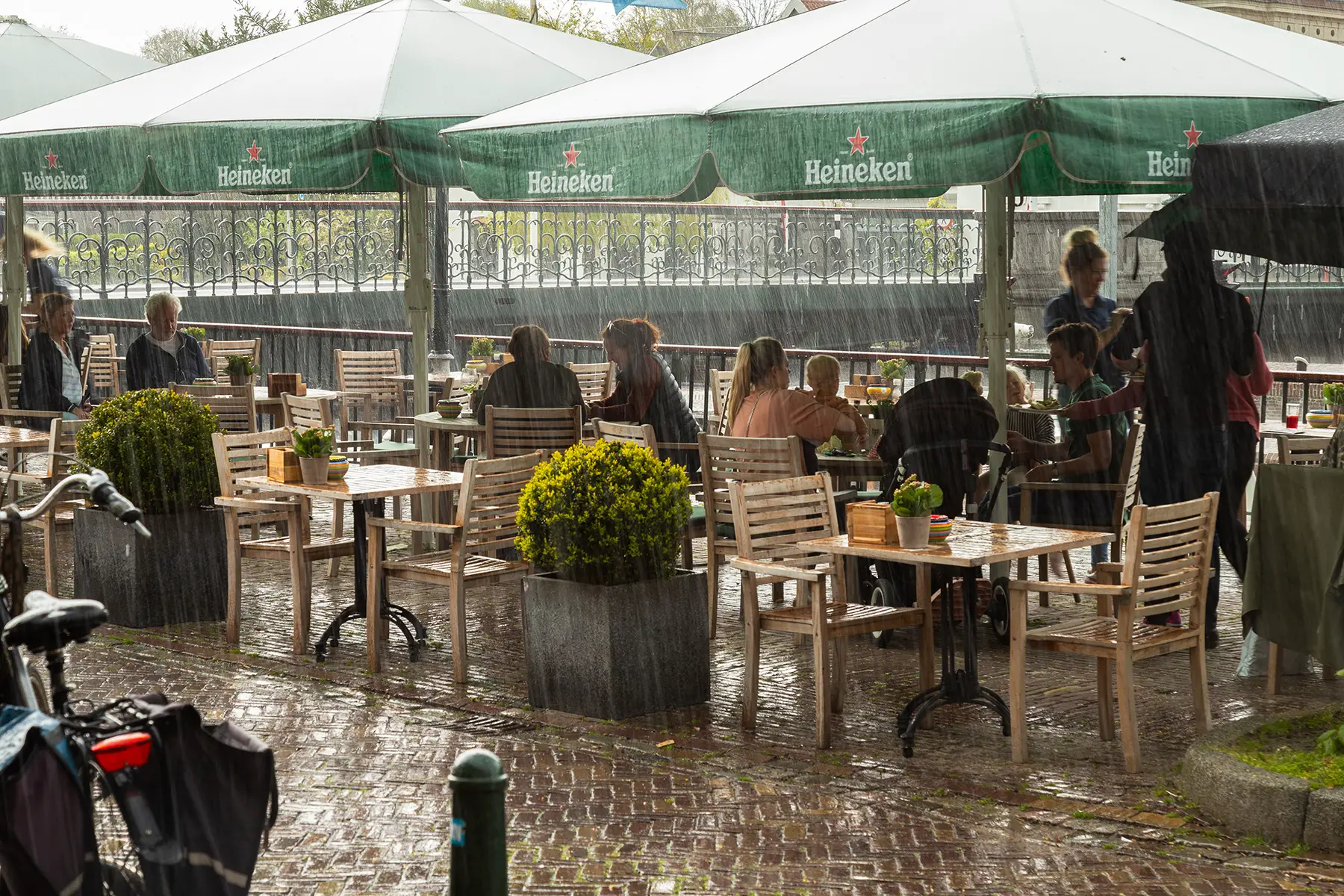
More serious issues lie in the casual – but blatant – racism often faced by Arabs and Black people. Until 2016, government policy used the terms allochtoon (immigrant, literally born of foreign soil) for immigrants and their descendants and autochtoon (native, for people with ethnic Dutch heritage). Although intended to be neutral when they were introduced in 1989, they predictably came to be seen as stigmatizing, particularly since people from the Caribbean Dutch countries and territories were also characterized as allochtonen.
Discrimination and racism in the Netherlands
Each December, Zwarte Piet (Black Pete) surfaces anew. The companion of Sinterklaas (St Nicholas) is usually portrayed by people in blackface, complete with curly wigs and bright red lipstick. The costume alludes to the character’s Moorish origins in Spain, or by some accounts, his profession as a chimney sweep. A polarized debate surrounds the tradition, which some see as a racist celebration of the Netherlands’ colonial history and role in the slave trade, while others defend it as a harmless children’s character. In 2015, the UN declared the tradition a vestige of slavery, while several municipalities have in recent years rounded out the character by adding helpers of other colors, such as Purple Pete, Rainbow Pete, and so on.
Finally, despite the fact that the Dutch government prohibits discrimination on grounds of age, race, sexual orientation, religion, nationality, and disability, expats looking for jobs and homes in the Netherlands may well encounter discrimination. Recent research demonstrates bias in job applications due to age, place of residence, or a ‘foreign-sounding name.’ Another survey by the consumer affairs program Radar found that 90% of real estate brokers agree not to rent homes on their books to people with Turkish, Moroccan, Polish, or Bulgarian backgrounds.
What is the best thing about living in the Netherlands?
Whether it’s the Dutchies’ egalitarian approach, their friendliness, the fact that the country was the first to legalize gay marriage, the generally low crime rate, the expanding economy and great work-life balance, Dutch gezelligheid, the hash, the boats, even the windmills, depending on who you talk to, you’ll come up with different answers to what’s wonderful about being an expat in the Netherlands – maybe even as many answers as there are expats.
What’s yours?
